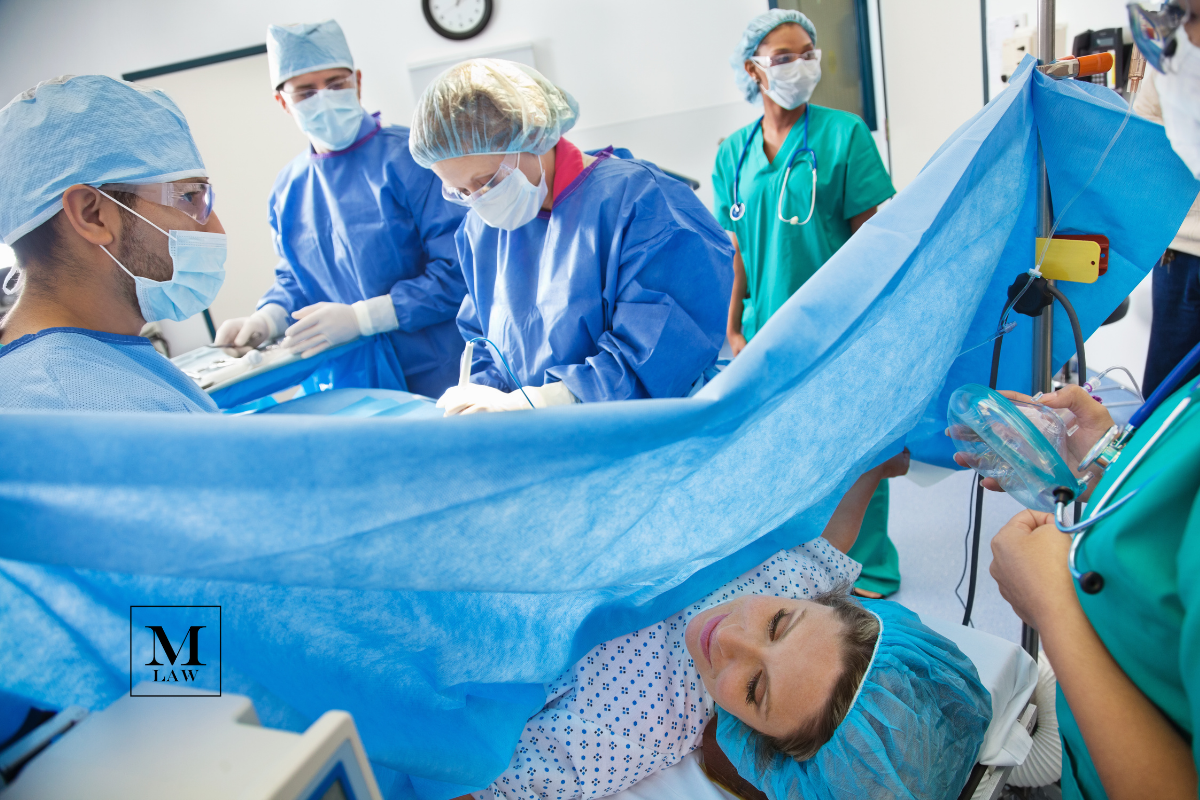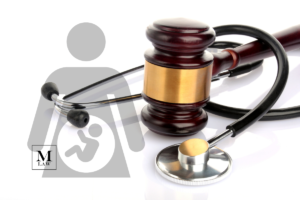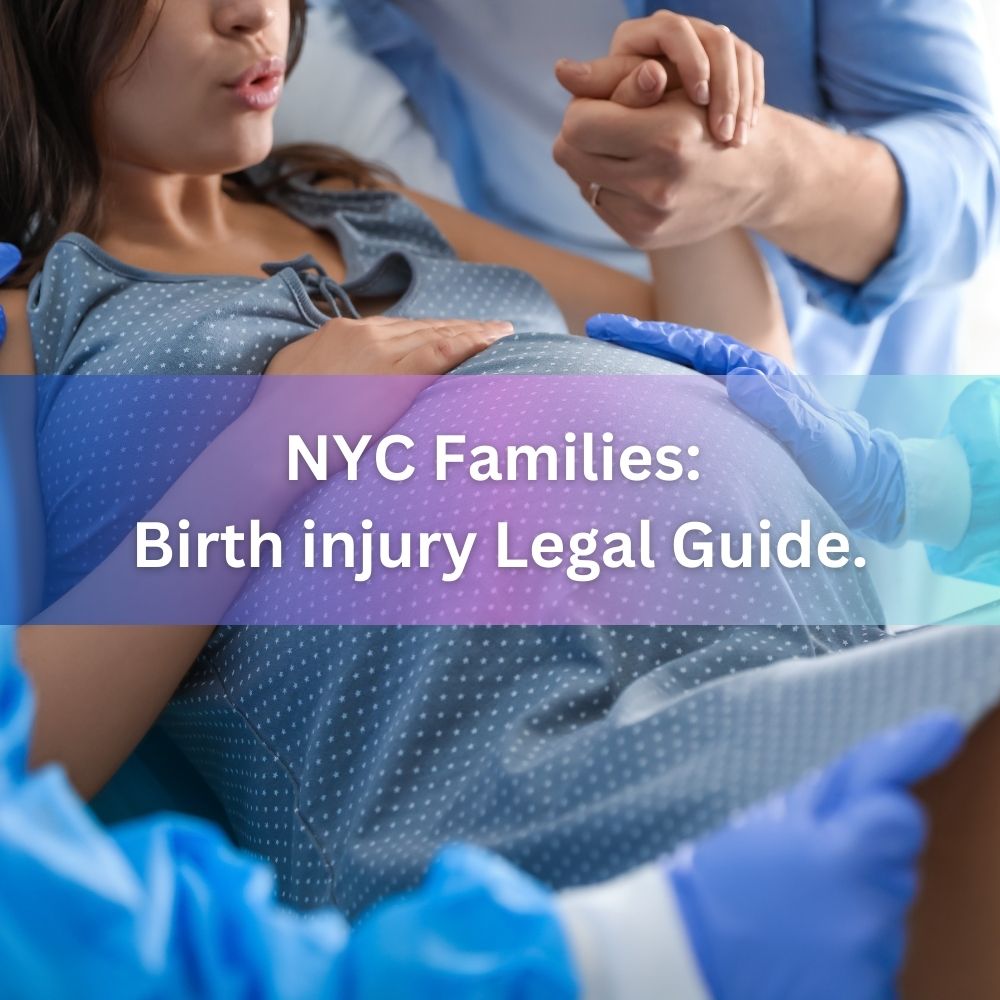Botched surgeries are always terrifying. A ruined surgery can mean the difference between life and death. They’re scary enough to warrant multiple tv shows dedicated solely to this topic. But when it comes to childbirth, a botched surgery is all the more terrifying. A botched C-section has the potential to affect not just you, but also your child, resulting in a life-altering birth injury.
Thankfully, a botched C-section is fairly rare, but that doesn’t mean it’s impossible for it to happen.
We’ll cover complications that can lead to a botched C-section, as well as risk factors.
But remember, don’t just take our word for it – talk to your doctor, get a second opinion, and take every precaution to ensure that the birth of your child goes without a hitch.

What is a C-section?
The Caesarean section, more commonly known as C-section, is a common surgery performed on some mothers during childbirth.
In a normal birth, often called “natural birth,” the baby is delivered through the vagina. Sometimes, and for many different reasons, an expecting mother is unable to undergo a vaginal birth.
When this is determined, OB/GYNs opt to use a C-section instead. C-section involves creating an incision in the abdomen and uterus, through which the baby is delivered.
Doctors have been performing C-sections for centuries, with the surgery dating back to the 1500s. The technique has even been used as far back as 715 BCE to deliver a child after the death of its mother.
There is even reference to Caesarean section birth in the Shakespeare play Macbeth.
Reasons for a C-section
Sometimes, your OB/GYN will recommend a C-section well before your due date.
There are many different reasons why you may need to undergo a C-section. The most common of which is if you have already undergone a C-section. OB/GYNs often recommend you undergo a C-section again if you are planning to have more kids.
However, sometimes a VBAC (vaginal birth after caesarean section) is most optimal after a C-section. VBACs have the potential for complications, but are also generally safe under proper medical attention.
Other reasons your doctor may recommend a C-section include:
- You are carrying twins/multiples
- You have a health concern
- You and your doctor have determined it is in your best interest
Having ample time to plan and prepare for a C-section is a privilege that some mothers do not get. Often, a C-section is performed as an emergency surgery to prevent injury either to you or to your child.
This can be the case if:
- Your baby is in distress
- Your labor isn’t progressing
- There’s a problem with your placenta
- There’s a problem with your umbilical cord
- There is a mechanical obstruction of the birth canal
- Your baby is in an abnormal position
Most hospitals have the staff, equipment, and training to properly handle an emergency C-section. However, there is always the possibility for mistakes or complications during high-pressure or time sensitive medical situations.

What can go wrong during a C-section?
Though the C-section surgery has been performed for hundreds of years, there are still many complications that can cause harm to the mother or child if not properly identified and treated.
Risks to Your Baby
Babies born by scheduled C-section are more likely to develop a breathing problem known as transient tachypnea.
Transient tachypnea is characterized by abnormally fast breathing during the first few days after birth. Often, this condition resolves itself, but if it does not, there may be cause for concern.
Rarely, your surgeon may cause accidental nicks or cuts to your baby when delivering via C-section. A minor scratch may be of no concern to you or your baby, but a severe laceration can be dangerous and the result of medical negligence.
Merson Law: New York's Top Birth Injury Law Firm
Founder Jordan Merson of Merson Law has built a stellar reputation representing birth injury law clients who have suffered catastrophic injuries.
The birth injury law team at Merson Law has extensive experience litigating birth injury medical malpractice cases valued in excess of $1 million and much of their background includes prosecuting cases that have resolved for more than $10 million.
The lawyers at Merson Law PLLC have decades of experience litigating cases like your’s, many of which have settled for millions of dollars.
Our team will work with you to get the compensation you need to build the best life for your child, and we’ll do it without hourly rates.
To start your claim, contact us by filling out our confidential form or by calling our Manhattan office. Get started with your birth injury lawsuit today.
Meet The Lawyers Of Merson Law
Risks to You
A C-section poses far more risks to you than to your baby.
Mayo Clinic identifies these risks as follows:
- Infection. After a C-section, you might be at risk of developing an infection of the lining of the uterus (endometritis).
- Postpartum hemorrhage. A C-section might cause heavy bleeding during and after delivery.
- Reactions to anesthesia. Adverse reactions to any type of anesthesia are possible.
- Blood clots. A C-section might increase your risk of developing a blood clot inside a deep vein, especially in the legs or pelvic organs (deep vein thrombosis). If a blood clot travels to your lungs and blocks blood flow (pulmonary embolism), the damage can be life-threatening.
- Wound infection. Depending on your risk factors and whether you needed an emergency C-section, you might be at increased risk of an incision infection.
- Surgical injury. Although rare, surgical injuries to the bladder or bowel can occur during a C-section. If there is a surgical injury during your C-section, additional surgery might be needed.
- Increased risks during future pregnancies. After a C-section, you face a higher risk of potentially serious complications in a subsequent pregnancy than you would after a vaginal delivery. The more C-sections you have, the higher your risks of placenta previa and a condition in which the placenta becomes abnormally attached to the wall of the uterus (placenta accreta). The risk of your uterus tearing open along the scar line from a prior C-section (uterine rupture) is also higher if you attempt a VBAC.
These risk factors are known by obstetricians and are taken into consideration when you undergo a C-section.
Despite this, if your doctor does not take proper precautions, they can botch your C-section, as is always possible with any surgery.
Can you sue for a botched C-section?
It is crucial to contact an experienced medical malpractice lawyer as soon as you discover that something isn’t right after your surgery. This can be something wrong with your baby or with your own recovery.
If medical negligence was at play, you may be owed financial compensation for damages to you and your baby from your botched C-section.
Merson Law’s team of medical malpractice and birth injury attorneys can help you get financial compensation for you and/or your child’s injuries, which can help you pay for medical expenses, recover lost wages, and more.
Contact us today for an initial case evaluation.















